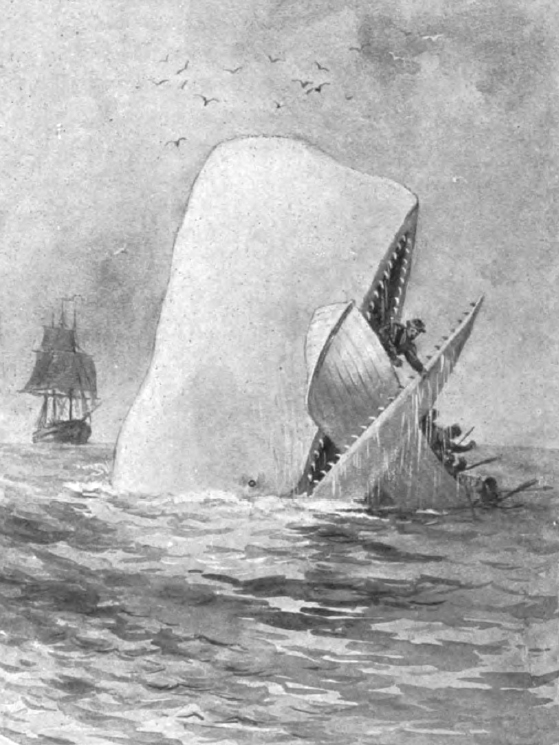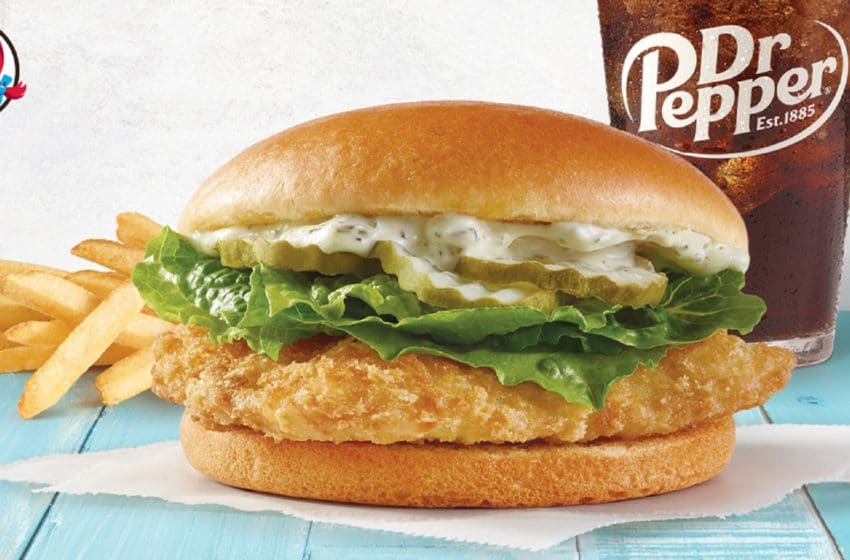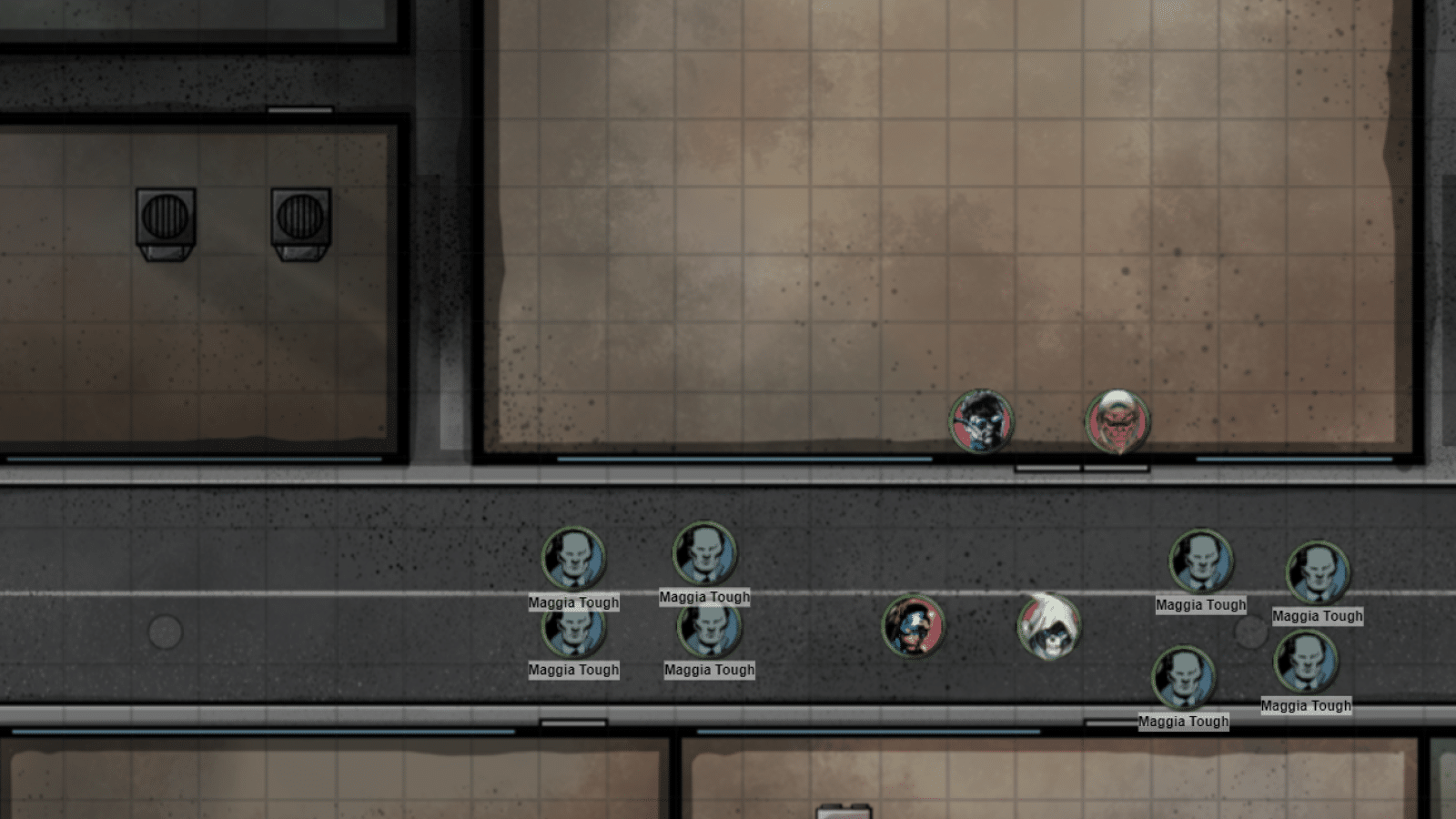This is the ComicsXF Guide to Fast Food Fish Filet Sandwiches.
Part 1 is available here. Part 2 is embedded above.
***
In Moby Dick, Pip discovers and is transformed by his experience alone in the vast sea, by an aquatic experience of reality:
“The sea had jeeringly kept his finite body up, but drowned the infinite of his soul. Not drowned entirely, though. Rather carried down alive to wondrous depths, where strange shapes of the unwarped primal world glided to and fro before his passive eyes; and the miser-merman, Wisdom, revealed his hoarded heaps; and among the joyous, heartless, ever-juvenile eternities, Pip saw the multitudinous, God-omnipresent, coral insects, that out of the firmament of waters heaved the colossal orbs. He saw God’s foot upon the treadle of the loom, and spoke it; and therefore his shipmates called him mad. So man’s insanity is heaven’s sense; and wandering from all mortal reason, man comes at last to that celestial thought, which, to reason, is absurd and frantic; and weal or woe, feels then uncompromised, indifferent as his God.”

In James Baldwin’s Giovanni’s Room, the eponymous Giovanni laments, “I don’t believe in this nonsense about time. Time is just common, it’s like water for a fish. Everybody’s in this water, nobody gets out of it, or if he does the same thing happens to him that happens to the fish, he dies. And you know what happens in this water, time? The big fish eat the little fish. That’s all. The big fish eat the little fish and the ocean doesn’t care.”
In “The Bait,” John Donne, as he is want to do, takes a very unsexy image and writes a very sexy poem:
Come live with me, and be my love, And we will some new pleasures prove Of golden sands, and crystal brooks, With silken lines, and silver hooks. There will the river whispering run Warm'd by thy eyes, more than the sun; And there the 'enamour'd fish will stay, Begging themselves they may betray. When thou wilt swim in that live bath, Each fish, which every channel hath, Will amorously to thee swim, Gladder to catch thee, than thou him. If thou, to be so seen, be'st loth, By sun or moon, thou dark'nest both, And if myself have leave to see, I need not their light having thee. Let others freeze with angling reeds, And cut their legs with shells and weeds, Or treacherously poor fish beset, With strangling snare, or windowy net. Let coarse bold hands from slimy nest The bedded fish in banks out-wrest; Or curious traitors, sleeve-silk flies, Bewitch poor fishes' wand'ring eyes. For thee, thou need'st no such deceit, For thou thyself art thine own bait: That fish, that is not catch'd thereby, Alas, is wiser far than I.
In Auden’s fish-love poem, “Fish in the Unruffled Lakes,” we find something a bit less steamy but a lot more warm:
Fish in the unruffled lakes Their swarming colours wear, Swans in the winter air A white perfection have, And the great lion walks Through his innocent grove; Lion, fish and swan Act, and are gone Upon Time’s toppling wave. We, till shadowed days are done, We must weep and sing Duty’s conscious wrong, The Devil in the clock, The goodness carefully worn For atonement or for luck; We must lose our loves, On each beast and bird that moves Turn an envious look. Sighs for folly done and said Twist our narrow days, But I must bless, I must praise That you, my swan, who have All gifts that to the swan Impulsive Nature gave, The majesty and pride, Last night should add Your voluntary love.
In Yeats’ “The Fish” we find nothing sexy at all:
Although you hide in the ebb and flow Of the pale tide when the moon has set, The people of coming days will know About the casting out of my net, And how you have leaped times out of mind Over the little silver cords, And think that you were hard and unkind, And blame you with many bitter words.
In H.D.’s “The Pool,” the Imagiste’s narrator asks us two important questions:
Are you alive? I touch you. You quiver like a sea-fish. I cover you with my net. What are you—banded one?
In Yusef Komunyakaa’s “Blind Fish,” the narrator brings down into the depths of the caverns, to a world with no light:
Caught here in your limestone cave, lost in a limbo of slow water torture, for you, each day is always night. Condemned to circle contours of a god’s state of mind, all pale swimmers in this light are a deck of cards shuffled by a pro. I back away & you come forth like falling leaves, & when I come closer, you ease away. How do you see into darkness? I wonder if you know the shape of gone, of never been born.

In Elizabeth Bishop’s “The Fish,” the narrator catches “a tremendous fish,” and eventually lets it go, but before she does so describes its tremendous ugliness, and, really, the ugliness of the whole endeavor, until one part of this grotesque scene, the oil from her boat, transforms it all into a thing of beauty, “everything/ was rainbow, rainbow, rainbow!”
In Marrianne Moore’s “The Fish,” Moore seems to begin with a command to “wade/ through black jade,” and moves through a reflection on the sea, and sea creatures, and the stars, until the speaker arrives at, finally, the conclusion: “The sea grows old in it.”
In Robert Penn Warren’s “A Way to Love God,” the narrator tries to convey “the shadow of truth” through a series of strange, fragmented, half-recalled images of landscapes and animals in nature, culminating in the appearance of sheep at midnight, “In that mist-diffused light their eyes/ Were stupid and round like the eyes of fat fish in muddy water,/ Or of a scholar who has lost faith in his calling.” At the end he declares “that may be a way to love God,” but the antecedent of the demonstrative pronoun is extremely unclear.
In Earnest Hemingway’s Old Man and the Sea, presumably lots of stuff is said about fish, but I cannot be bothered to check.
In the Book of Job, Job wishes to understand the Problem of Evil, how suffering can be unjustly visited on human beings if the world is governed by a just God, and so God lectures him about a cool fish:
20 Canst thou draw out the leviathan with a hook, or canst thou tie his tongue with a cord?
21 Canst thou put a ring in his nose, or bore through his jaw with a buckle?
22 Will he make many supplications to thee, or speak soft words to thee?
23 Will he make a covenant with thee, and wilt thou take him to be a servant for ever?
24 Shalt thou play with him as with a bird, or tie him up for thy handmaids?
25 Shall friends cut him in pieces, shall merchants divide him?
26 Wilt thou fill nets with his skin, and the cabins of fishes with his head?
27 Lay thy hand upon him: remember the battle, and speak no more.
28 Behold his hope shall fail him, and in the sight of all he shall be cast down.
In Countee Cullen’s “The Bright Chimeric Beast,” Cullen declares that the Leviathan, “the regal fish,” “that fish of dread regime,” like all creatures of power and myth, can only live in “the poet’s breast,” the “poet’s dream.”
In The Odyssey, Odysseus is warned of two great monstrous threats through which he will have to sail:
“I will lay the two alternatives before you, and you must consider them for yourself. On the one hand there are some overhanging rocks against which the deep blue waves of Amphitrite beat with terrific fury; the blessed gods call these rocks the Wanderers. Here not even a bird may pass, no, not even the timid doves that bring ambrosia to Father Jove, but the sheer rock always carries off one of them, and Father Jove has to send another to make up their number; no ship that ever yet came to these rocks has got away again, but the waves and whirlwinds of fire are freighted with wreckage and with the bodies of dead men. The only vessel that ever sailed and got through, was the famous Argo on her way from the house of Aetes, and she too would have gone against these great rocks, only that Juno piloted her past them for the love she bore to Jason.
“‘Of these two rocks the one reaches heaven and its peak is lost in a dark cloud. This never leaves it, so that the top is never clear not even in summer and early autumn. No man though he had twenty hands and twenty feet could get a foothold on it and climb it, for it runs sheer up, as smooth as though it had been polished. In the middle of it there is a large cavern, looking West and turned towards Erebus; you must take your ship this way, but the cave is so high up that not even the stoutest archer could send an arrow into it. Inside it Scylla sits and yelps with a voice that you might take to be that of a young hound, but in truth she is a dreadful monster and no one—not even a god—could face her without being terror-struck. She has twelve mis-shapen feet, and six necks of the most prodigious length; and at the end of each neck she has a frightful head with three rows of teeth in each, all set very close together, so that they would crunch any one to death in a moment, and she sits deep within her shady cell thrusting out her heads and peering all round the rock, fishing for dolphins or dogfish or any larger monster that she can catch, of the thousands with which Amphitrite teems. No ship ever yet got past her without losing some men, for she shoots out all her heads at once, and carries off a man in each mouth.
“‘You will find the other rock lie lower, but they are so close together that there is not more than a bow-shot between them. [A large fig tree in full leaf101 grows upon it], and under it lies the sucking whirlpool of Charybdis. Three times in the day does she vomit forth her waters, and three times she sucks them down again; see that you be not there when she is sucking, for if you are, Neptune himself could not save you; you must hug the Scylla side and drive ship by as fast as you can, for you had better lose six men than your whole crew.’
“‘Is there no way,’ said I, ‘of escaping Charybdis, and at the same time keeping Scylla off when she is trying to harm my men?’
“‘You dare devil,’ replied the goddess, ‘you are always wanting to fight somebody or something; you will not let yourself be beaten even by the immortals. For Scylla is not mortal; moreover she is savage, extreme, rude, cruel and invincible. There is no help for it; your best chance will be to get by her as fast as ever you can, for if you dawdle about her rock while you are putting on your armour, she may catch you with a second cast of her six heads, and snap up another half dozen of your men; so drive your ship past her at full speed, and roar out lustily to Crataiis who is Scylla’s dam, bad luck to her; she will then stop her from making a second raid upon you.’”
In Derek Walcott’s “Night Fishing,” Walcott leads us back to “the sybil’s black cry”:
Line trawl for each word with the home-sick toss of a black pirogue anchored in stuttering phosphorus. The crab-fishers' torches keep to the surf's crooked line, and a cloud's page scorches with a smell of kerosene. Thorny stars halo the sybil's black cry: “Apotheneis thelo I am longing to die.” But, line, live in the sounds that ignorant shallows use; then throw the silvery nouns to open-mouthed canoes.
In Canto 5 of Dante’s Paradiso, Dante turns to fish to help describe how he is transformed in celestial beauty:
And if the star itself was changed and smiled, What became I, who by my nature am Exceeding mutable in every guise! As, in a fish—pond which is pure and tranquil, The fishes draw to that which from without Comes in such fashion that their food they deem it; So I beheld more than a thousand splendours Drawing towards us, and in each was heard: “Lo, this is she who shall increase our love.”
David Foster Wallace did that whole bit about a fish going “what the hell is water” in that graduation speech one time. You’ve probably heard it.
In Coleridge’s “The Rime of the Ancient Mariner,” the Mariner, after he is cursed, and his ship stops with no wind, no current, describes what he sees on the water: “Yea, slimy things did crawl with legs/ Upon the slimy sea.” It is only when he looks upon these disgusting creatures and sees them as beautiful, as things to be loved, that his curse is lifted:
Beyond the shadow of the ship, I watched the water-snakes: They moved in tracks of shining white, And when they reared, the elfish light Fell off in hoary flakes. Within the shadow of the ship I watched their rich attire: Blue, glossy green, and velvet black, They coiled and swam; and every track Was a flash of golden fire. O happy living things! no tongue Their beauty might declare: A spring of love gushed from my heart, And I blessed them unaware: Sure my kind saint took pity on me, And I blessed them unaware. The self-same moment I could pray; And from my neck so free The Albatross fell off, and sank Like lead into the sea.
In the twentieth episode of Supernatural Season 6, Castiel tells the audience directly:
“You know, I’ve been here for a very long time. And I remember many things. I remember being at a shoreline. Watching a little gray fish heave itself up on the beach, and an older brother saying, ‘Don’t step on that fish, Castiel. Big plans for that fish.’”
***
Part 3 will arrive soon.
Robert Secundus is an amateur-angelologist-for-hire.






